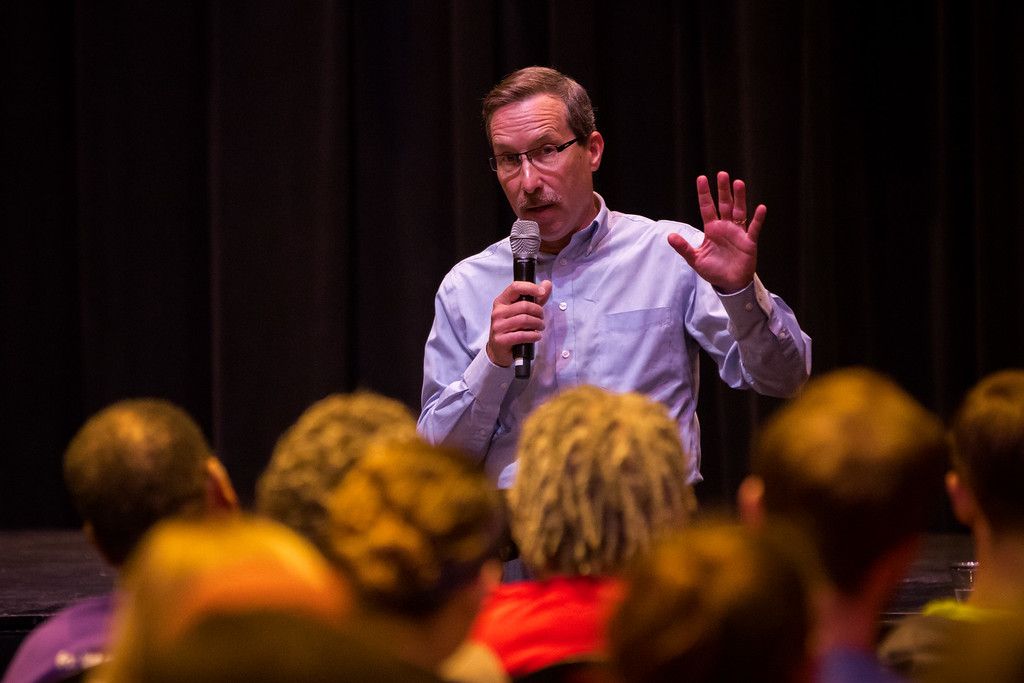by Bruce T. Gourley
Published May 2011
(Baptist Studies Bulletin Archives Index)

From their beginnings, Baptists have exhibited decidedly mixed feelings about education. Many of the earliest Baptist leaders were formally educated. For example, Thomas Helwys was a lawyer, Roger Williams graduated from Cambridge, and John Clarke had formal training in theology, language and medicine. At the same time, early Baptists generally distrusted the aristocratic, educated clergy of establishment churches, a distrust manifested in a tendency among Baptist ministers to reject formal theological training in favor of the Spirit’s leading from the pulpit.
Although British Baptists founded Bristol Baptist College in 1679 and Baptists in America established Rhode Island College in 1764, few Baptists advocated for higher education prior to the nineteenth century. Many Baptists in America during the first half of the 1800s, in part spurred by the beginnings of the modern missions movement, finally embraced higher education as an appropriate means of preparing for Gospel ministry.
Yet higher education represented only a portion of the new Baptist interest in education. Sunday Schools (for children in local congregations), Baptist colleges (founded and funded by local or state Baptist organizations and often focusing on the liberal arts, including religion), Baptist seminaries (regionally-focused), and religious periodicals (national and regional) for persons of all ages flourished as Baptists became increasingly concerned about the education of children, young people and adults. Nevertheless, a significant segment of Baptists, not the least of whom were Primitive Baptists, remained opposed to both formal ministerial education and Sunday Schools.
The late nineteenth and twentieth centuries witnessed notable growth in educational efforts for Baptists of all ages, including rapid expansion of the number and scope of Baptist universities and seminaries. At the same time, the emergence and advance of fundamentalism among Baptists in America fostered a renewed suspicion of education. Yet formal ministerial training in the form of strict indoctrination appealed to many fundamentalists, with the result being the establishment of Baptist Bible schools for the training of ministers. Meanwhile, Black Baptists formed and grew their own institutions.
Indeed, the development of Baptists in America in the twentieth century could well be told through the lens of education. In the world of higher education, competing Baptist visions of academic freedom and indoctrination battled for the minds of students and the direction of colleges, universities and seminaries. Fundamentalist Liberty University emerged as the largest Baptist university in America (but merely one of hundreds of similar-minded colleges and universities), fundamentalists within Southern Baptist life redirected Southern Baptist Convention seminaries away from academic freedom and toward indoctrination, and the number, scope, and racial/ethnic composition of traditional/moderate Baptist universities and seminaries/divinity schools North and South expanded rapidly near the end of the century.
A similar struggle for the minds and morals of children ensued among Baptists in America. The Civil Rights movement of the 1950s and 1960s led to the formation of many white-only, religious private Baptist schools and ushered in the modern home-school movement that is embraced by many white Baptist families today. Curriculum for today’s religious private and home-schooling movement typically demonizes modern science, focuses on religious indoctrination, rewrites American history (denying the Baptist and American heritage of separation of church and state in order to posit the founding of America as a Christian nation), and prepares children (whether they choose to do so or not) to further their education at fundamentalist Bible colleges.
Meanwhile, today’s traditional/moderate Baptist universities face challenges maintaining a distinctive Baptist identity, even as escalating tuition costs are often more than an typical Baptist family can afford.
